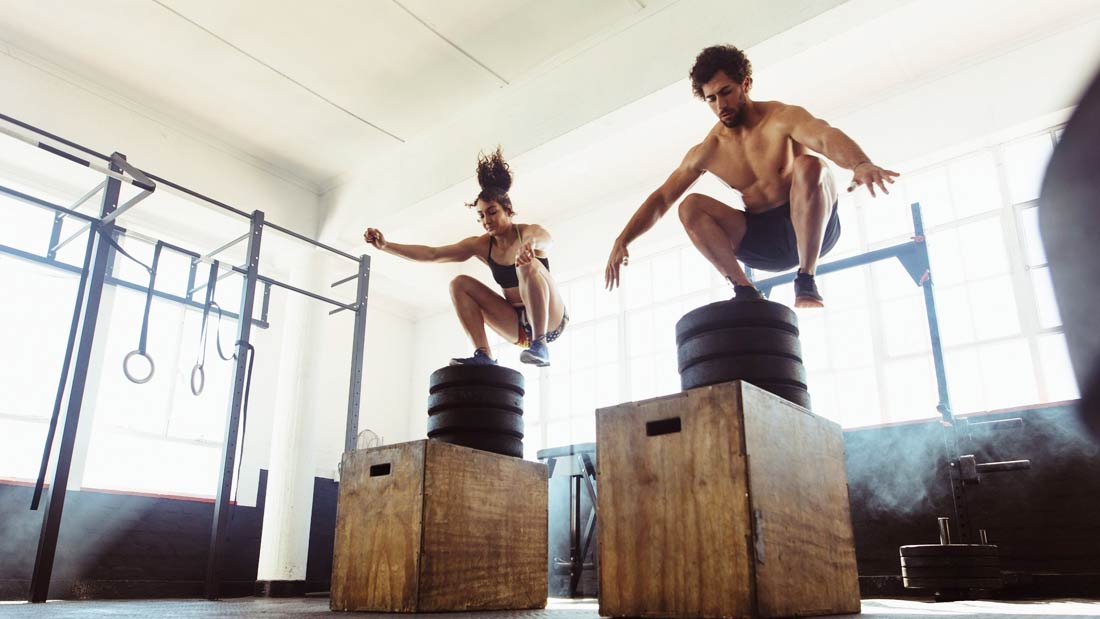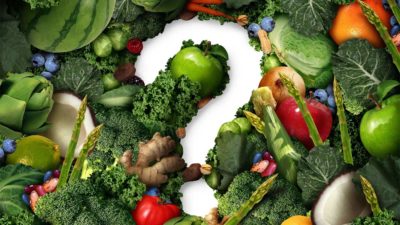Powered by Plants – why plants are the best sports fuel

Plants can do more than just keep us well-nourished and healthy – a plant-based diet can also shift your sports endeavours to the next level. It’s no coincidence that more and more athletes are going vegan – and reaping the benefits.
There’s no magic to it; a healthy vegan diet based around fruit and vegetables, pulses, wholegrains and nuts and seeds offers huge advantages, thanks simply to its nutrient content. Its power lies mainly in these key components.
1. Plants provide healthy carbohydrates – essential for sustained energy release and to replenish muscle energy stores
2. Plants have better protein – easier for your body to digest, better ratio of amino acids than animal protein
3. Plants provide healthy fats – all the essentials, naturally low in saturated fats and no cholesterol – great for your heart and blood vessels
4. Plants are rich in antioxidants – they help you recover better and faster, keep the airways healthy and mucus-free
5. Plants contain fibre – it helps to keep your digestive system healthy, important to maintaining energy levels
Better stamina
Scientific research reveals that plant-based diets increase athletes’ aerobic capacity (how much oxygen you breathe in), which extends the time before exhaustion and improves performance – helpful for both strength and endurance training. Other studies have revealed that runners fuelled by plants have better-quality diets overall and increased stamina compared to their meat-eating counterparts.
The complex carbohydrates from plants help to maintain glycogen (energy) stores in your muscles whilst also providing sustained energy release. At the same time, the lack of hard-to-digest animal protein makes you less tired.
More oxygen
One of the important mechanisms by which plant-based diets make your body work better is by improving your blood flow and oxygen supply to the muscles. The reason is that your blood vessels are healthier when you eat plant foods low in saturated fats and high in antioxidants and fibre. They contract and relax better and faster, regulating blood flow more precisely.
Your blood also flows more smoothly because it’s slightly less thick (viscous) than that of meat-eaters, leading to a better exchange of oxygen and nutrients between the blood and body tissues.
The natural nitrates from vegetables slightly widen your blood vessels, meaning more blood supply to the performing muscles, improving your athletic endeavour. They also stimulate faster energetic recharging of your muscles and delay fatigue.
Faster recovery
Wholesome vegan diets lower the levels of inflammation in the body, which is important for muscle recovery. The micro damage that your muscles naturally suffer when you’re exercising is being constantly repaired – but damage within the body triggers small inflammatory reactions that don’t always help the mending process. A plant-based diet, with its antioxidants, phenols, polyunsaturated fats and fibre, lowers these inflammatory reactions, limits damage and helps you achieve a faster recovery. Many meat-eating athletes take antioxidant supplements but when you go vegan, you don’t need any extra help!
Plant foods also make you sleep better, which helps muscle regeneration. Complex carbs (those that your body breaks down slowly as opposed to sugars) from wholegrains, pulses and fruit and veg are one of the cornerstones of plant-based diets and science shows that a carb-rich dinner makes you sleep better – you fall asleep faster and wake up less often in the night. Certain plant foods containing the amino acid tryptophan can also help to improve the quality of your sleep – pumpkin and sunflower seeds, mushrooms, broccoli, peas, beans, tofu, buckwheat, oats, dates, peanuts and leafy green vegetables.
Basic rules
At each meal, you should have good sources of carbohydrates and protein, some healthy fats and antioxidants. A recipe for a healthy meal could look like this:
Wholegrains or starchy veg
(wholemeal bread, whole wheat pasta, brown rice, oats, quinoa, sweet potatoes or potatoes)
For complex carbs, protein, vitamins and minerals
+
Pulses or nuts and seeds
(lentils, beans, chickpeas, edamame, tofu, tempeh, hummus, falafel, bean or veggie burgers, tofu sausages, mock meats, nuts, seeds or nut butters)
For protein, complex carbs, healthy fats, vitamin, minerals, antioxidants
+
Fruit or vegetables
(fresh, chopped in a salad, blended in a smoothie or soup, steamed or lightly cooked)
For healthy carbs, fibre, vitamins, minerals and antioxidants
When it comes to snacks, have only a small one before you exercise and leave bigger ones for after. Your body needs energy to fuel your performance but too much food cannot be digested fast enough and can make you feel sick. It’s best to have a piece of fruit, an energy bar, or a few dates around 30 minutes before your training.
Post-workout, your muscle glycogen (energy) stores are empty and you have tiny tears in your muscles. That’s why you need protein for muscle repair and some healthy carbohydrates to replenish glycogen within 45 minutes of training. That could be a plant protein shake and a banana, wholemeal pitta bread with hummus and tomato, rice/corn cakes with peanut butter or a handful of nuts and dried fruit.
Depending on your type of training, you may need to increase your protein intake. An average person needs 0.8 gram of protein daily per kilogram of bodyweight. If you’re moderately active, you don’t need to worry about upping your protein but if you’re a serious athlete or want to build muscle, you’ll need to increase your intake to 1-2 grams of protein per kilogram of bodyweight. It’s easily doable with wholefoods but protein powders are a more convenient way of achieving it – the choice is yours.
Complete package
To be at your best, don’t forget to hydrate! It’s absolutely crucial that you drink enough water. Being dehydrated hinders your performance, recovery and your body’s natural detoxification that happens through the kidneys.
Top up your diet with vitamins B12 and D that are lacking in our modern lifestyles and have a little seaweed every now and then to make sure you’re getting enough iodine and your body will work like a dream.
When we run on plants, we are fuelled in the best possible way. Even though the motivation to go vegan doesn’t usually revolve around health, it’s undeniable that plants do the body good and can also make you a better athlete. For detailed information about vegan sports nutrition, see our dedicated vegan sports nutrition pages.







